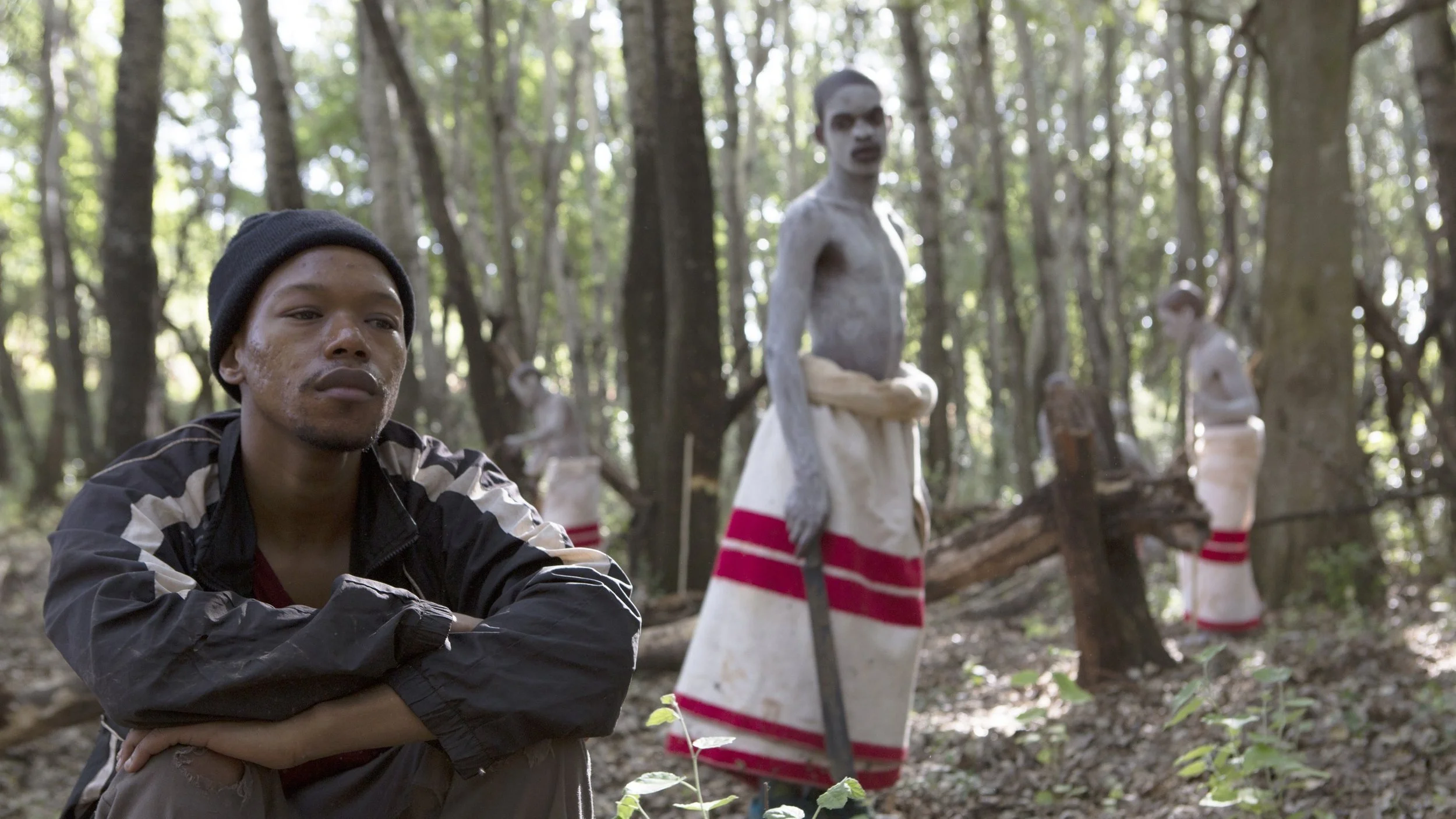The Wound
Part drama about sexuality, part social comment, this is a striking film about life in Africa.
Here is a film that has interesting fresh ground to cover and is certainly worth seeing even if I have to admit to some surprise that it carried off the Sutherland Trophy at the 2017 London Film Festival (that being the award that spotlights new talent by being presented to the most impressive fictional entry representing the filmmaker's first or second feature). John Trengove, the director here, was making his very first feature and in it he casts a sympathetic outsider's eye on aspects of life in the southern areas of Africa where the Xhosa people live. In this context, although he has a share in the screenplay credit, it should be mentioned that the other writing credits belong to insiders, Malusi Bengu and Thando Mgqolozana.
Most unusually, The Wound brings together two distinct elements. The title would appear to be a reference to a circumcision ritual which, although continuing today, is carried out in conditions of secrecy. Even so, it is a standard initiation into manhood for young men who are sent into the countryside for this ritual, which then necessitates staying there for a week or two as a period of healing. Males not quite so young who were once initiates themselves are given the task of acting as care workers. Using a mainly ethnic cast including non-professionals as subsidiary figures, The Wound plays in these scenes as a work akin to documentary making the viewers feel the horrific nature of the event without (mercifully) showing any scenes of actual surgery.
It is in this setting that we meet two old friends who have become regular caseworkers, Xolani (Nakhane Touré, a sympathetic presence) and Vija (Bongile Mantsai). Although Vija is married and a father, his relationship with Xolani is sexual and it is this bond that encourages Xolani to return to this site each year. This time a father, fearful of his son not being tough enough, has asked that this boy, Kuanda (Niza Jay Ncoyini), have Xolani assigned to him as caretaker. But this leads to resentments and tensions since Kuanda is gay too and discovers what Xolani and Vija get up to in secret. These two sides of the film arguably have a theme that unites them dramatically: the painful ritual may be said to make you a man, but are there not better concepts to be found as to what being a man should really mean?
It could indeed be argued that the wound of the film's title is actually unrelated to circumcision, being instead a reference to the harm done to gay men in Africa who are regarded with such scorn that they feel the need to conceal their orientation. Here these fears fuel the tensions that see Xolani, Vija and Kuanda each responding in a different way. Arguably, these tensions needed to be portrayed in more detail while, in contrast, even at a mere 88 minutes the documentary side of The Wound comes to feel a bit prolonged. Ultimately, the film doesn't quite hit the mark (which is why I see it as lucky to be a prizewinner), but it is sincere and adventurous and ought not to be overlooked.
MANSEL STIMPSON
Cast: Nakhane Touré, Bongile Mantsai, Niza Jay Ncoyini, Thobani Mseleni, Gabriel Mini.
Dir John Trengove, Pro Elias Ribeiro and Cait Pansegrouw, Screenplay John Trengove, Thando Mgqolozana and Malusi Bengu, from a story by John Trengove and Batana Vundla, Ph Paul Özgür, Pro Des Bobby Cardoso and Solly Sithole, Ed Matthew Swanepoel, Music João Orecchia, Costumes Lehasa Molloyi.
Urucu Media/Riva Filmproduktion/Das kleine Fernsehspiel/ARTE/ZDF/Oak Motion Pictures/Cool Take Pictures-Peccadillo Pictures.
88 mins. South Africa/Germany/The Netherlands/France/Italy. 2017. Rel: 27 April 2018. Cert. 15.


